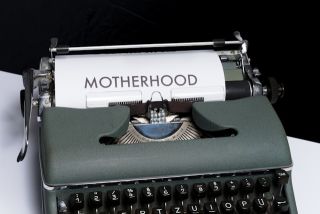Parenting
5 Things About Motherhood I Wasn't Prepared For
Personal Perspective: We can do better than "It takes a village."
Posted May 8, 2024 Reviewed by Gary Drevitch
Key points
- Parenthood is an exercise in holding space for conflicting emotions.
- Parenting requires an identity shift that can be hard to reconcile as children grow up.
- Grief is an accompanying emotion for many moms, although it's rarely discussed.

Each year when Mother's Day rolls around, I have mixed emotions. I know it's meant to be a special day to honor the fine art of motherhood and all it entails. Similar to the old military recruiting slogan—"It's the toughest job you'll ever love"—motherhood is all encompassing. There's no halfway in emotionally.
I know that, without a doubt, motherhood is an extreme honor. The power to raise small humans into full-fledged adults is special, and the outcome lasts a lifetime. That said, being a mom changes you in many ways, and some of these caught me off guard. While the circumstances of each family are different, there are some things I'll admit that I wasn't prepared for.
Loss of former self
Perhaps I'm being a bit nostalgic, looking back upon my days as a mental health clinician and inner city caseworker, brimming with idealism and energy—something my husband and I shared as we embarked upon the journey of raising our kids. Deciding to grow a family required a value shift, requiring that I pour my energetic resources into the raising of our two children, both of whom joined our family through adoption.
Staying home to raise my kids was the best decision, without a doubt. I'm so proud of who they are becoming. Knowing the impact of early abandonment and neglect on childhood development, I knew my kids would require all I had to give. But being all-in comes at a price. Parenthood for me, meant leaving my career behind. The demands of special-needs parenthood took center stage. For many years, I was an overwhelmed mom, trying to keep it together, while educating myself on the potential life-long implications of reactive attachment disorder. Feeling tired and bedraggled most days, my friendships faded into the background along with my career aspirations.
Where are the "villages?"
I grew up in the 70s and 80s. It was a time when we all knew our neighbors, the world felt small and simple, and generosity seemed commonplace. A thriving middle-class economy allowed for a one-income household, where motherhood seemed entirely doable, intuitive, and relatively easy—because you knew a community had your back.
As I entered into the parenthood scheme in 2007, I realized that the same sense of community that I had experienced growing up was almost nonexistent as a new mom of a child with unique needs. Thankful for a four-year stint as an advisor for Children’s Hospital (with other moms of kids with special needs), and our local YMCA where I taught swim lessons, I managed to stay as connected as I could, while haggling with insurance companies and hustling for services for my child in my “spare time.”
The village I had hoped to find was not there, or maybe I just didn’t fit. I couldn’t be the happy, contributary mom bringing the caterpillar-formed veggie snacks, because I was exhausted, in survival mode, and barely keeping it together.
The Resource Desert
We now know that nobody could have expected the mental-health crisis among youth that erupted as a result of the Covid-19 pandemic, or the scarcity of mental health resources that would result.[1]As a struggling mother with a child with developmental trauma, those resources have been even fewer.
With nearly six in 10 (56%) Americans seeking or wanting to seek mental health services either for themselves or for a loved one, the demand for mental health services is stronger than ever.[2] The resource desert has been one hurdle that many families have faced, including ours. While I am thankful for my and my husband's clinical backgrounds—he's a school psychologist—there are some issues, behaviors, and goals that are more effectively treated when a good team is onboard. For us, that became our son’s school IEP (Individualized Education Plan) team with the resolve to never give up.
.jpg?itok=QZnOMGoA)
"New norms" spawned by the tech generation
While there have been some positive aspects of technology that have made their way into our culture, it has also made life more complicated for families in some ways. Handheld devices have certainly made it easier to stay in touch with our kids. We can know where they are and if they are safe. Apps have made scheduling details easier. Many of us (including me) would be lost without our navigation apps or the ability to look up information at the touch of our fingertips.
But the advent of social media has had some undeniably negative effects on kids, and for many parents (including me) it has been accompanied by a feeling of powerlessness.
Psychotherapist Douglas Buzenski cites FOMO (fear of missing out), social comparisons, cyberbullying, [online] compulsive behaviors, and the constant bombardment of filtered realities as noteworthy contributors to mental health problems among young people today. While social media can provide opportunities for support and self-expression, the negative effects of all these things can be detrimental.[3]
It's hard for those of us who grew up without these handheld devices to truly appreciate how hard it can be to disengage, even if we know it's healthier for our well-being. One day my daughter came home in tears because of a comment made about her looks on a social media site. I was livid. It broke my heart. I wanted to take a hammer and smash her phone, but knew that it wouldn't help matters.
Today's "new normal" includes platforms where people engage online. It requires a social heartiness, a sense of willpower and commitment to self-knowledge that I never had as a young person, in addition to strategies to deal with difficult feelings that arise on-the-regular from being bombarded with news and images that can be hard to shut out.
Empty Nest Grief
To say our parenting journey has been hard is an understatement, and it wouldn't be far-fetched to think that we've looked forward to becoming empty-nesters. In truth, the grief of staring down the "empty nest" caught me off guard.
Our daughter is finishing her first year of college and our son will be a senior in high school, and I still am trying to wrap my head around my current identity. I know I'm so more than a mom. But motherhood has consumed so much of my over the past 18 years that it's hard to reconcile this fact. For all the effort, sweat and tears I've put into my role as a mom, there has also been much laughter, richness and pride.
My kids are amazingly resilient creatures, and while it's not lost on me that my husband's and my work has helped them to become who they are, there's a huge hole that I know they'll leave behind as they spread their wings and fly. Yes, motherhood is the toughest job I've ever loved, but it's also been the most heart-wrenching. And that's okay.
References
[1] Behavioral Health Workforce, 2023. December 2023.
[3] Buzenski, D. The Impact of Social Media on Mental Health in Students. Capital University. .




